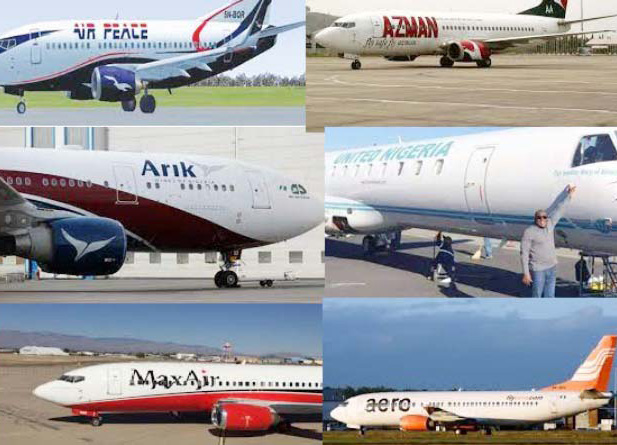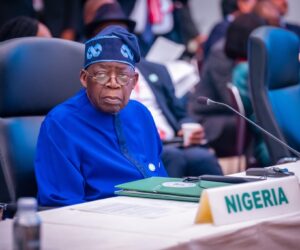1
Nigeria’s airlines spend billions of naira annually as they continue to ferry aircraft overseas for maintenance, despite the country offering some of the cheapest man-hour rates in the world.
Industry estimates suggest that Nigerian carriers spend between $800 million and $1 billion every year on foreign maintenance, largely in Europe, the Middle East, and Asia. The reliance on offshore facilities persists even as domestic maintenance, repair and overhaul (MRO) outfits in Nigeria charge less than half of what it costs abroad.
The Global Cost Differential
In the United States, man-hour rates for aircraft maintenance hover between $120 and $180, depending on aircraft type and certification. European MROs – particularly in Germany, the United Kingdom, and France – are even pricier, with rates ranging between €100 and €160 per man-hour (approximately $110 to $175).
Across Asia and the Middle East, maintenance costs are moderately lower – facilities in Malaysia, Singapore, and the United Arab Emirates typically charge between $80 and $120 per man-hour. In stark contrast, Nigerian MRO facilities such as 7Star Global Hangar, Aero Contractors and others charge between $50 and $80 per man-hour.
This considerable cost advantage is driven primarily by cheaper labour, lower utility tariffs, and modest administrative overheads. Sheri Ayuba Kyari, an aviation engineer with the 7Star Global Hangar at the Murtala Muhammed Airport, Lagos, told Daily Independent that Nigeria’s labour cost advantage remains unmatched.
“If you look at the global picture, what we charge here is less than half of what you’ll pay in Europe or the US. The difference is largely labour – our engineers are highly skilled, but labour costs here are not inflated by the same economic pressures as in developed markets.”
Why Airlines Still Go Abroad
Despite the glaring price differential, most Nigerian airlines still prefer to send their aircraft overseas for major checks – particularly C and D checks, which require advanced infrastructure, tooling, and certification.
Local facilities are currently limited to line maintenance and light C-checks, restricting their scope and competitiveness. According to Kyari, the bottleneck lies not in technical competence but in regulatory recognition and infrastructure.
“We have the expertise, and our engineers are among the best trained. But most of our facilities are not yet certified by the European Union Aviation Safety Agency (EASA) or the Federal Aviation Administration (FAA). Without these certifications, foreign airlines and insurers are hesitant to trust the local system for heavy checks.”
Industry observers estimate that if Nigeria’s MROs were fully certified and operationally robust, the nation could save up to 40 percent of current foreign maintenance expenditure, amounting to over $400 million annually.
Labour Advantage, Dollar Challenge
The affordability of labour is Nigeria’s strongest selling point. Local technicians and engineers, many trained abroad or by OEMs, provide services at a fraction of global rates.
This cost efficiency makes Nigeria a potential MRO hub for the West African sub-region. However, the country’s foreign exchange volatility erodes much of that advantage.
Operators still rely heavily on imported spare parts, consumables, and tooling – all priced in dollars. The fluctuating naira means MRO facilities often struggle to maintain stable pricing and profitability. Kyari explained further: “Our cost base is in naira, but our parts and equipment come in dollars.
Every time the naira drops, our costs shoot up. If the government can stabilise foreign exchange access for the aviation industry, it will help MROs plan long-term and attract more business from African carriers.”
The Airlines’ Dilemma
For airlines, maintenance abroad remains a necessary evil. While costlier, foreign facilities offer quicker turnaround times, better equipment availability, and international certification – all crucial for aircraft leasing and insurance compliance.
Dr. Allen Onyema, Chairman of Air Peace, has consistently lamented the high maintenance costs that burden Nigerian operators. “Every time we take an aircraft abroad for checks, millions of dollars leave this country. We are spending fortunes that could be invested locally to create jobs and build capacity.
Nigeria needs to encourage its MROs because it makes no economic sense to keep exporting maintenance when we have the expertise here,” Onyema said at a stakeholders’ forum in 2023.
He added that the lack of government incentives remains a major drawback. “MROs should not pay the same import duties as trading companies. If we get relief on customs duties for spare parts, tools, and consumables, we can reduce the cost of operations significantly. The government should see MRO as a national economic enabler.”
Infrastructure And Policy Gaps
Power supply remains a recurring headache for MRO operators. Most facilities depend on diesel generators to sustain operations, adding up to 20 percent extra to overhead costs. Similarly, inconsistent policies and slow regulatory approvals discourage private investment.
Kyari noted that several investors are interested in Nigeria’s MRO market but are held back by uncertainty. “Investors want policy continuity.
They need to know that what is valid today won’t change in two years. The aviation industry is capital-intensive; investors cannot commit when they’re unsure of government direction.”
Prospects
Despite the hurdles, Nigeria’s MRO landscape is gradually evolving. Aero Contractors continues to expand its facility in Lagos, having recently completed several C-checks on Boeing 737 aircraft locally. 7Star Global Hangar, which boasts modern tooling and a 30,000-square-metre facility at Lagos airport, has also signed partnerships with foreign OEMs to enhance its capabilities.
Daily Independent has gathered that the Federal Government, through the Nigerian Civil Aviation Authority (NCAA), has indicated plans to harmonise certification standards to ease EASA and FAA recognition.
Industry insiders confirm that discussions are underway to attract strategic partnerships from Middle Eastern and Asian MROs seeking African footholds. If these initiatives materialise, Nigeria could emerge as West Africa’s MRO hub, serving airlines from Ghana, Liberia, and Cameroon.
Towards a Sustainable MRO Ecosystem
To harness the potential, Kyari said, “We don’t need to match Europe’s rates to be competitive. Our advantage is affordability. What we need is recognition, support, and an enabling environment to expand our services beyond Nigeria.”
If government and industry stakeholders align, Nigeria could turn its low-cost advantage into a strategic economic asset – saving airlines hundreds of millions in foreign expenditure, creating thousands of skilled jobs, and transforming the country into Africa’s maintenance hub.”








